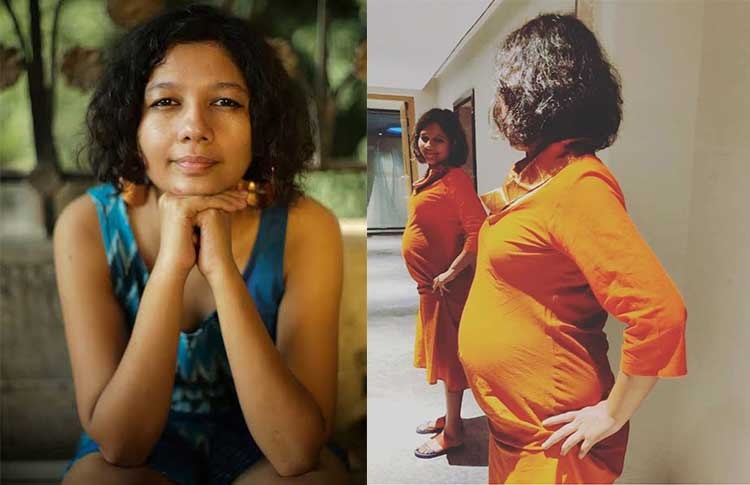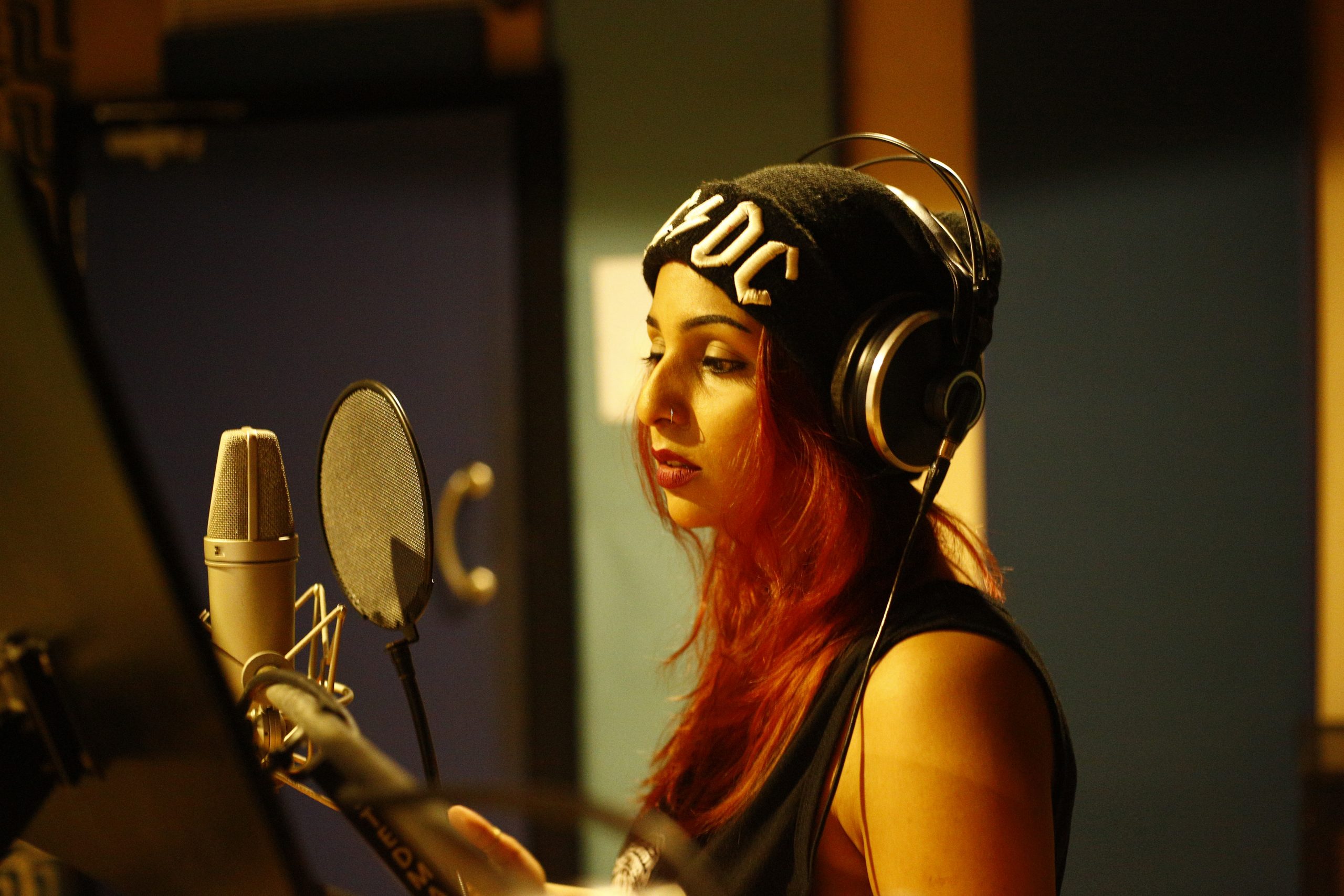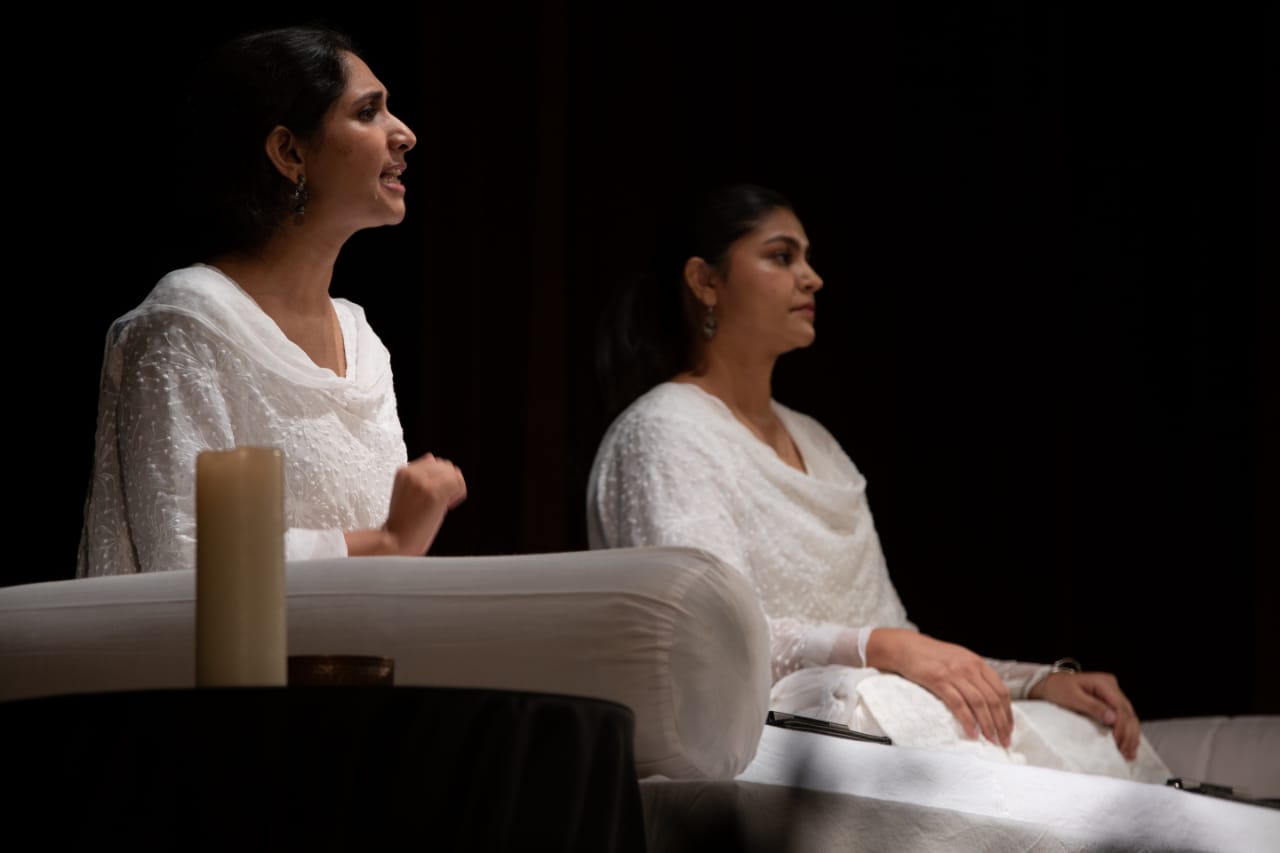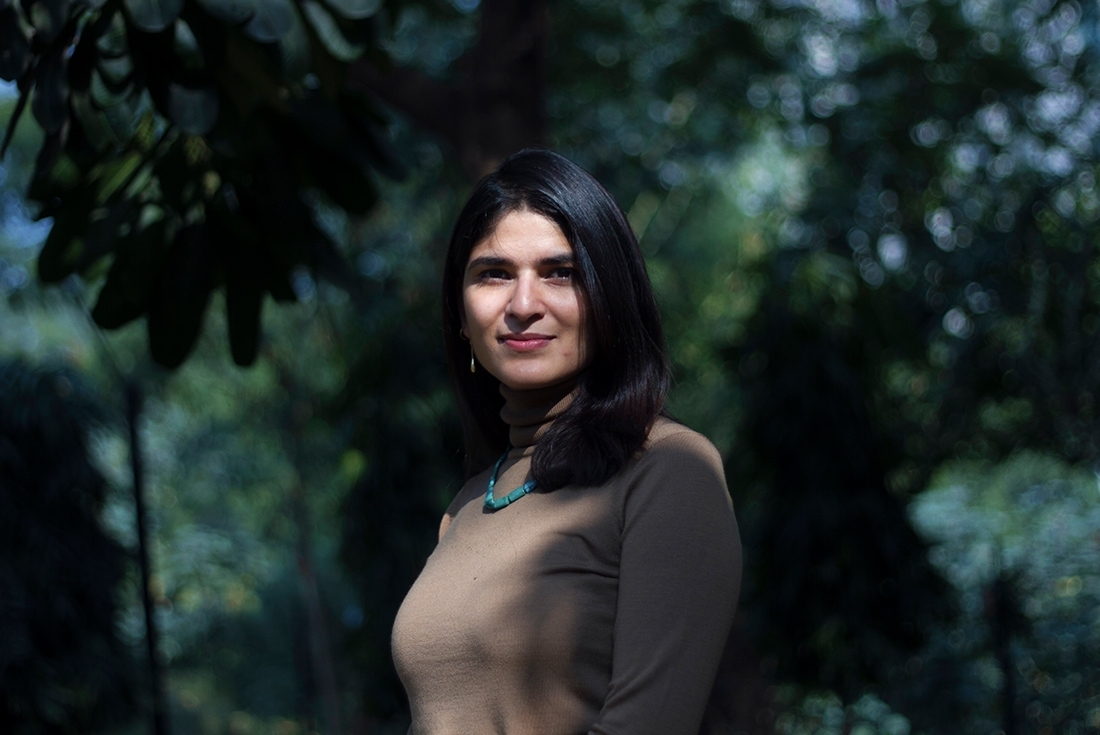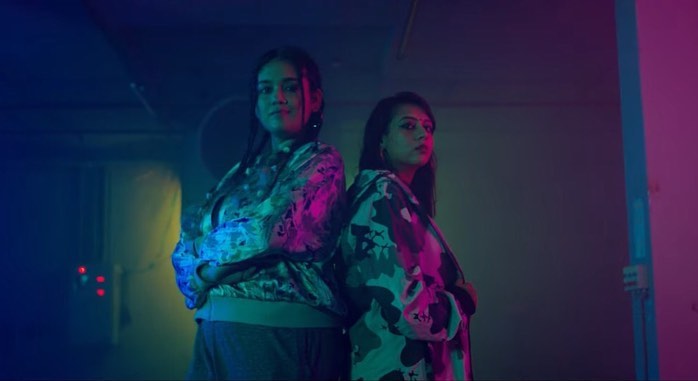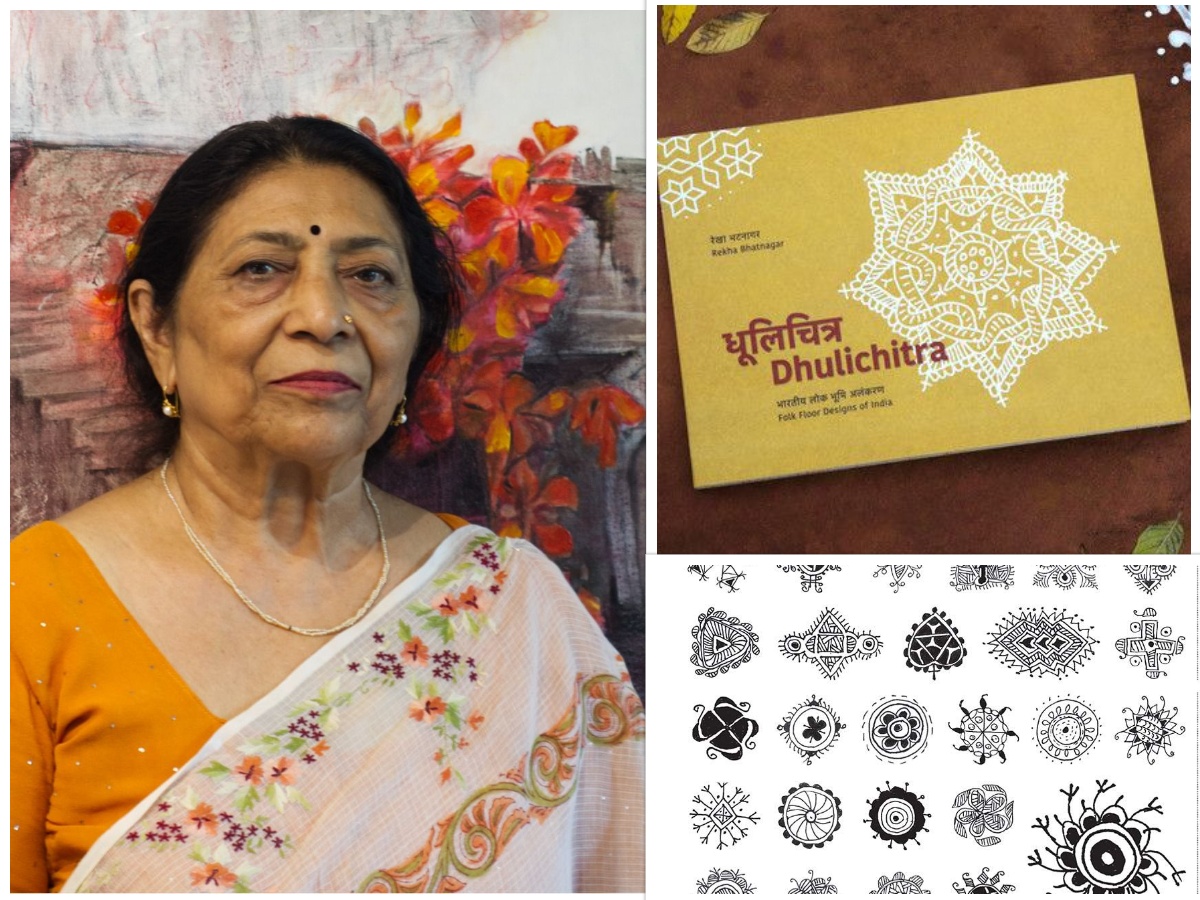Meanka Handu On Her Channel Asvun Koshur And The Importance Of Preserving Kashmiri Culture
- IWB Post
- September 7, 2021
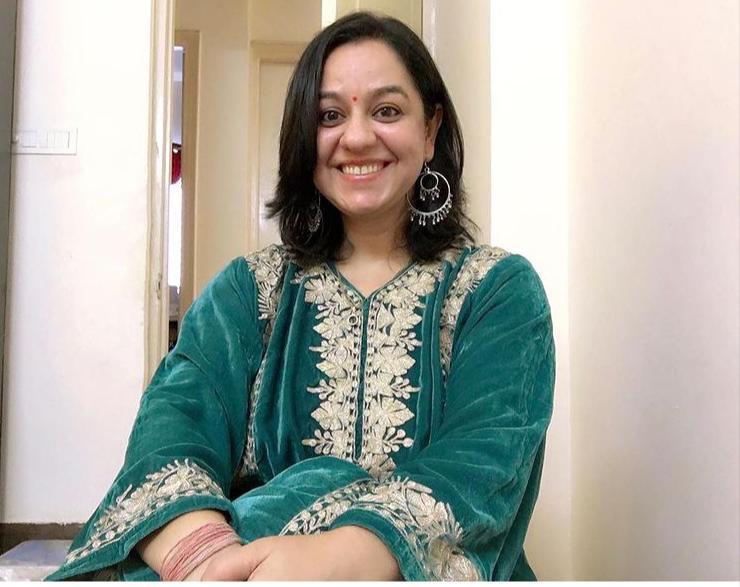
“If you talk to a man in a language he understands that goes to his head. If you talk to him in his own language that goes to his heart.” – Nelson Mandela
Today as technologies rage and communication grows, we often tend to ignore the survival of local languages. As language transcends borders, the importance of our regional languages take a backseat. Yet, one cannot turn a blind eye to the imperative need of preserving and keeping the conversation alive in one’s own mother tongue or traditional language. Why? Because language is much more than mere strings of words or sentences, it is the repository of culture and generations of history, traditions and values.
Meanka Handu is one such champion who has played a huge role in preserving her language. A Kashmiri, Meanka was aware that Kashmiri was ‘dying a silent death’ and strongly believes that ‘language is the backbone of any culture.’ Her YouTube channel called Asvun Koshur has garnered thousands of followers and praises for her exemplary ideation, execution, observation and heartfelt efforts at preserving the Kashmiri language. In fact, her channel and project have stirred interest and inspiration, especially in the younger generation who have sadly been steadily withdrawn from Kashmiri land and language.
Kashmir, as a political and social entity, has been in turmoil for long. The goodness and positive vibes from the Paradise on Earth are often buried under the noise of years of trials and tribulations. Asvun Koshur that translates into a smiling Kashmir is Meanka’s sincere attempt to preserve the language and bring a lot of smiles. Her onscreen character called Dida is funny and at the same time talking about important issues, such as violence against women, child abuse, eve-teasing, online shopping, etc. As she points out, ‘If you try to teach the language formally it becomes very boring. You need to hear the language, and humor is a strong form of communication. It can help put across social and strong messages and people do respond well when things are told to them in a lighter manner.’
Meanka, a Kashmiri Pandit, had to forcefully leave her ancestral home in Kashmir as a child with her family. She today resides in NCR Delhi, but her heart undoubtedly lies in Kashmir. However, her videos and views are inclusive of Kashmir as a whole. And why not! As she says, “Kashmir is a territory of sensitive religious communities so you have to be careful to not hurt a community, and I take utmost care. From my own experiences and exodus, I understand and thus always talk about our collective losses. I have been able to convey with whatever I can speak between my shows that we all have a right to our religion and our political opinion. That should not come in between our relation or bond towards the land. You are free to think in a certain way. So I keep it very simple because people understand simple things.”
However, besides her humorous videos, Meanka recently began the Project Asvun Koshur Zaan. With seven episodes done and more in the pipeline, this project aims at bringing kids (Kashmiri Muslim, Pandit, and Sikh) to converse with each other, get to know about their land, collective history and individual traditions. The adorable live sessions on Asvun Koshur’s Instagram handle between the communities opens up a whole range of emotional, social and cultural interactions. Unlike many parts of India, Kashmir is one place where there is a seamless blend of cultures between the different communities. Whether it is a Kashmiri Muslim, Kashmiri Pandit or Sikh, their culture, language, eating habits, etc. are the same. Project Asvun Kshour Zaan, hence is a wonderful platform that has gotten children living in and outside of Kashmir to connect and recreate their cultural heritages.
We caught up with Meanka aka Dida as she spoke passionately about the Kashmiri language, Kashmir the place she calls home and highlighting the lighter and positive aspects of the land that should be known for both its physical and cultural beauty. Before we get into the hardcore conversations, I do have an observation to share. It takes huge courage, effort and deep rooted, genuine love for one’s ‘home’, one’s culture to single-handedly bring a language back in vogue. Meanka, through Asvun Koshur, has tugged many a heartstring that have longed for peace and brotherhood in their land. She has revived what Kashmir culturally means, who its people truly are, and what amazing bonds of unification lie at the core, which is often misunderstood and ignored in current circumstances. For this and much more, we hope that the government and organizations seek to encourage, acknowledge and help her in her stride. As a one-woman army, she marches ahead in her quest because her passion and love for her land are big enough to jump over commercial inadequacies and social challenges. Yet, words of praise and appreciation, as well as tangible, practical support can help in taking this initiative forward at a faster rate.
Excerpts from our conversation with Meanka,
Kashmir invokes mixed reactions. What does Kashmir mean to you?
Meanka: Kashmir for me is my home and will always be. I lived in Jammu for six months and then moved to NCR Delhi. My family got refuge here, I studied here, I did my engineering from the University of Bombay, I worked here and I am immensely grateful for it. But home is home. At any point in time when I could do it, I would want to go back to Kashmir and have a foothold there because for me it’s an emotional issue and an issue of dignity. Culturally, I have taken it upon myself to do whatever little I can do as this is also a form of patriotism. I am not bitter at all. It is of course, very unfortunate and unfair what happened but we have to see and find the way forward. In fact, I am very sensitive and empathetic to people who were born post 90, because they are the ones who need to be told the real history. They are the ones who are hearing a lot of mixed information. I have seen Kashmir through my parents’ eyes, who had a lot of Kashmiri Muslim friends and our culture is such that our surnames are also the same! We are bound together, we look alike, we speak the same language, we eat the same food, we have certain days and dates such as the Sonth the arrival of spring which we celebrate together -because the connection is with our pious and beautiful land.
Why is it important to preserve Kashmiri culture, especially the language?
Meanka: I take immense pride to be part of a history that is 5000 years old. But if people like us don’t talk about it how will the world know – and I also want to point out the positive picture. Kashmir is not only about bombs and bullets. It is a culturally strong land. And so, do you not want to hear some good stories also? Thus, I talk about everything. I am not a rightist or leftist, but I follow an ideology where I call ‘a spade a spade.’
Tell us a bit about women in Kashmiri culture.
Meanka: From my memories of Kashmir and what I hear from my parents, Kashmiri society used to be a very liberal society and women had a lot of respect. For Kashmiri Pandits, dowry was never a part of the culture. The Kashmiris are happy with the birth of a girl child where we usually welcome the child saying, ‘Koor gayi noor’. In my home, I have six pet names because when I was born everybody was so happy! So our parents are supportive of the girl child. Kashmiri women are strong, even mentally. If you look at our history, we as a community have been on our toes all the time. 1990 wasn’t the first time for Kashmiri pundits; it was the 7th exodus as we have had different rulers, so our women are quite strong. Also, entrepreneurship is not new for Kashmiri women. For example, we have women fish sellers in Kashmir who have a typical way of dressing up and they walk with a huge bamboo basket on their heads. For me, she is also an entrepreneur. And there is the cultural aspect also, like the importance of headgear in Kashmiri culture. My nani till today covers her head if you ask for a picture.
What kind of challenges do you face being a Kashmiri social media influencer? These could be political, social, emotional, gender based, etc?
Meanka: I have a dedicated audience since they have to understand Kashmiri. I have faced trolling, ageism, misogyny, and more. People often find it hard to digest that there is a single woman who is running the channel. Also, I play a much older woman in my videos. But people relate with this character I play called Dida who has two children. People tend to believe it; however, I do get uncomfortable sometimes when a 15-20 year old says, I am like their mother! They think I am actually an older woman and someone once said ‘aakhri dino ki tayari karo.’ People think after a certain age the life of a woman should be just taking care of the kids and looking after her family! I also usually call an imaginary sister in my videos, but there is only me talking. I am making up responses for the person who is not in the frame and so there is a bit of exaggeration. A lot of criticism comes due to a lack of intellect because I do satire. So my jokes are not direct. I will want to laugh with people, not laugh at them. I say it in a manner that makes them laugh and forces them to think.
Why the transformation to Dida? Do you know someone loosely based on her?
Meanka: Dida is one of my own pet names. It is usually the pet name given to the older girl of a Kashmiri Pandit household. But I have also had many Kashmiri Muslim girls writing to me that Dida is their pet name, too. Now, if you are conveying a social message you have to look a certain way, as psychologically also, it has a bigger impact. In my videos, you will see me covered, wearing kameez salwar, scarf around the neck, sometimes a bindi, sometimes not (that depends on my mood). I haven’t learned acting or any of this but it comes to me naturally. Also, I try to keep in mind all the nuances to add to the character. My comedy is organic, free-flowing and all of this adds to the character and completes the act. When I am in that character, attire, expression and making hand movements which are so typical to Kashmir, it brings out a different impact. For example, I always put my hand on my chin and that is a typical Kashmiri hand movement as people also comment that it is so relatable. Certain body language is intrinsic to a community.
What are your future plans in regards to scaling your influence?
Meanka: Unfortunately, an artist is a poor person in this part of the world! I am a trained IT engineer and though I worked with reputed organizations it never gave me soul satisfaction. Today, besides Asvun Koshur I am into learning and development, I help emerging organizations set up training functions and I have also written research papers as a freelancer. However, I sincerely would want to pass on this craft to people. I would want to set up workshops in Kashmir and Jammu and for people who are in other parts of India and want to learn Kashmiri. I really want people to know more about their history which I think can be done via the medium I have chosen. Also, I wish it is somehow possible for me to go back to Kashmir and have a base there.
- 0
- 0





